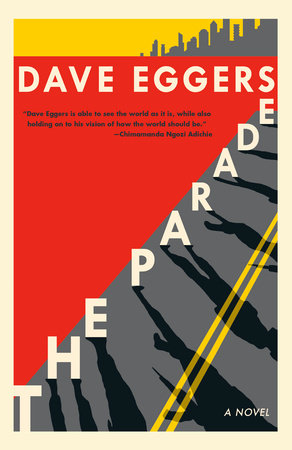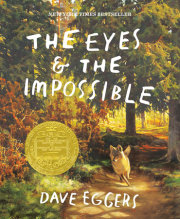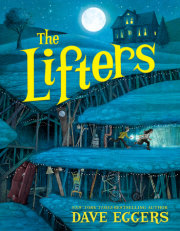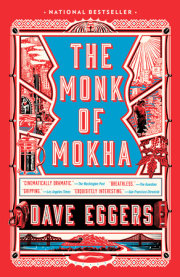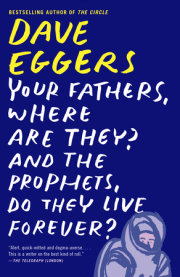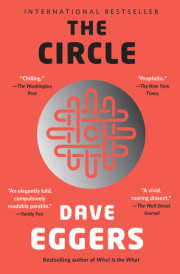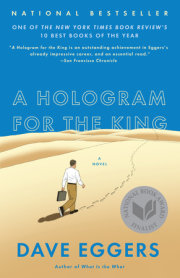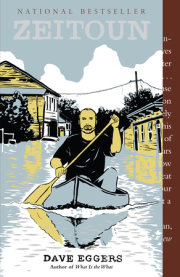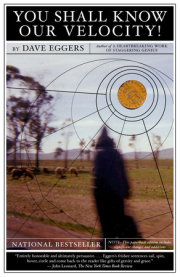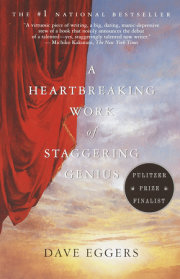Chapter One
In the morning’s platinum light he raised his leaden head. He was lying on a plastic mattress, in a converted shipping container, below a tiny fan that circulated the room’s tepid air.
He washed himself with packaged towelettes and put on his uniform, a black jumpsuit of synthetic fiber. Under a quickly rising sun he walked across the hotel’s gravel courtyard to his partner’s room. They had never met. He knocked on the corrugated steel door. There was no answer. He knocked louder.
After some shuffling from within, a lithesome man answered, naked but for a pair of white boxers. He had dark eyes, a cleft chin and a wide mouth ringed with full, womanly lips. A swirl of black hair rakishly obscured his left eye.
“Pick a number.”
“Nine,” the man at the door said, smiling slyly.
“Okay. You know how the company handles names. I don’t know yours, you don’t know mine. For the next two weeks, you’re Nine. Call me Four.”
“You’re Four?”
“You will call me Four. I’ll call you Nine. Got it?”
For reasons of security, the company insisted on simple pseudonyms, usually numerical.
“Got it,” Nine said, and swept his hair from his face and threw it back.
They had arrived without passports. Passports were complications and liabilities in such a place, a nation recovering from years of civil war, riddled with corruption and burdened now by a new and lawless government. Four and Nine had been flown in under assumed names on a private charter. In the past, in other nations, the company’s employees had been ransomed and killed. The kidnappers went first for their quarry’s company, then family, then nation. But without passports or names, men like Four and Nine were anonymous and of little value. Their machine, the RS-80, was almost impossible to trace. It bore no company name, no serial number and had no national registry. No one but their clients, the northern government in the capital, would know anything about them, their origins or employer.
“You ready to eat?” Four asked. “We have forty minutes till we begin. The crew is making a final check on the machine.”
“Soon,” Nine said, a smile overtaking his expansive mouth. Nine stepped out of the doorway and tilted his head toward the bed behind him.
Beyond Nine’s naked torso Four could see the furrowed sheets of an unmade bed, and woven within them the muscular legs of a sleeping woman. Nine made no effort to hide her. Instead he smiled conspiratorially. Four had never met this man, and did not think himself capable of prophecy, but in an instant he knew Nine was an agent of chaos and would make the difficult work ahead far more so.
Now Nine yawned. “Can I meet you in a few minutes?”
Four closed the door and made his way across the courtyard, now baking in the day’s young heat, to the cafeteria. The room was humid with men bent over their food—men in suits, men in faded military uniforms, men in traditional dress. All spoke in low voices over the clacking of cheap tin silverware on plastic plates.
There were only a few foreigners in the makeshift dining hall attached to this new hotel, comprising two dozen shipping containers arranged in an untidy semicircle. After waiting half an hour in the breakfast room, Four went to Nine’s room again and knocked on the door.
“Coming!” Nine yelled, and the room burst with laughter.
Four returned to the cafeteria and drank bottled water. Ten minutes later Nine entered the room, having showered and dressed in his company-issued black jumpsuit. He had, though, declined to insert himself into the suit’s upper half. He wore a white V-neck undershirt, the jumpsuit’s sleeves dangling limply by his side, petting the other men’s shoulders as he slipped around the tables on his way to Four.
“I didn’t expect you here today,” Nine said. “The planes in these parts aren’t so punctual. That’s why I had company last night. You married?”
“No,” Four lied.
“You’re not eating?” Nine asked.
“I already ate,” Four said. In his room, he had finished a packet of dry oatmeal and powdered milk, a bag of almonds and a length of venison jerky—all of which he had brought with him. He had packed enough food for the twelve days the job was expected to take.
“You ate in your room?” Nine said, offended. “You can’t do that. The food here’s so good. Well, it’s not so good, but it’s intriguing.” His hair had fallen over his left eye and he flung it back with a flourish of his hand.
“I’ll get to it,” Nine said, and went to the buffet and chose half a grapefruit, a tall glass of mango juice, three boiled eggs and a few shards of animal bone covered in purple meat. On his way back to the table, Nine’s lifeless sleeves again flailed amid the other diners. Four looked around the room to see if any of the local men, a mix of former rebel commanders and recent profiteers, had taken an interest in Four or Nine. None had. He and his new partner were obviously foreigners in a place where most visitors were aid workers and arms inspectors, and it was better if they remained unmemorable.
Nine set his plate down and allowed his hair to fall from his forehead like the tendrils of a willow. Eschewing the tin utensils, Nine used his fingers to bring the gamey bones to his mouth for gnawing and washed the meat down with sun-colored juice. The company had advised against eating regional fruit in whole or liquid form, and strongly suggested that eggs or meat could contain E. coli, salmonella or ringworm. But Nine was devouring it all with abandon, his greasy hair groping his plate obscenely. Four could not discern what the company saw in this man. He was a liability.
“You know what she cost?” Nine asked, his mouth full. He did not wait for Four to answer. “Less than what we’re paying for breakfast. And she was fresher than this,” he said, jabbing his fork at the wet grapefruit before him.
“The machine’s waiting,” Four said. “The first pod is in place. How long until you’re ready?”
Nine looked at him, grinning. “Now I know why they call you the Clock.”
Four stood. “Be ready in ten minutes,” he said.
“You’re not serious. I just got in yesterday,” Nine said. “The schedule’s padded. This is a great town. Let’s spend a day here. Another night, more importantly.” He raised an eyebrow lewdly. “I’ll loan you my girl.”
Four pushed in his chair. “I’ll meet you out front in ten minutes. Bring all your gear.”
Copyright © 2019 by Dave Eggers. All rights reserved. No part of this excerpt may be reproduced or reprinted without permission in writing from the publisher.

